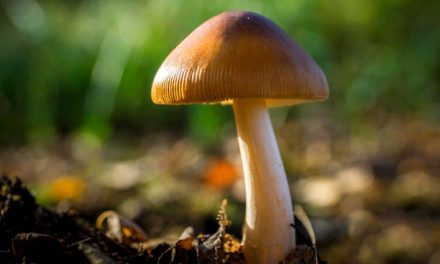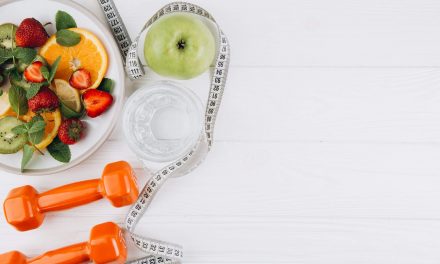This vegetable provides many vitamins, especially provitamin A, and antioxidants such as C and E. It contains lycopene, the antioxidant pigment found in tomatoes, and minerals such as potassium, phosphorus, magnesium, iron, and zinc. All this, with a deficient caloric intake and a large amount of water. Its composition makes it a perfect companion throughout life. Highly recommended during pregnancy and lactation, it contributes to the excellent condition of bones, skin, and teeth in growth and adulthood.
Among the benefits of pumpkin, we find it essential to take care of the urinary system, protecting us against cystitis, kidney stones, fluid retention, and insufficiency. It also helps the cardiovascular system by keeping cholesterol and anemia at bay, as well as stress. It helps us deal with colds, flu, and other infections, protecting the digestive system from gastritis, ulcers, constipation, and parasites. It positively intercedes in metabolic diseases such as diabetes, excess uric acid, or obesity. It can help you lose weight.
It is also beneficial for the respiratory tract preventing pharyngitis, laryngitis, and bronchitis; it also helps with eye health and is very good at fighting prostate-related pathologies or male infertility. As if that were not enough, pumpkin also affects our nervous system and helps us calm anxiety, control stress, treat depression, or end insomnia.
Nutritional value of pumpkin
The nutritional value of pumpkin per 100 grams is the following according to the Spanish Nutrition Foundation (FEN):
Calories: 15 kcal
Carbohydrates: 2.2 g
Proteins: 0.7 g
Total fat: 0.2 g
Cholesterol: 0 g
Fiber: 1 g
Calcium: 29 mg
Magnesium: 10 mg
Potassium: 130 mg
Phosphorus: 19 mg
Vitamin C: 14 mg
Vitamin A: 75 mg
Types of pumpkin
The edible pumpkins that we can easily find in Spain, according to the FEN classification, are divided into two large groups: summer squash (with thinner skin and soft seeds, less storage time) and winter squash (sweeter, but drier, with thick skin that contributes to longer conservation). Among the first group, the following stand out:
-Cucurbita maxima or typical squash. It is the best known of all for being the one that illustrates our nightmares every time Halloween arrives. It is also one of the most used to make purees and stews with orange skin and orange pulp.
-Patisson, Pattypan, or pumpkin bonnet. It is small and flat. The most common variety is white skin, but it can also be green or yellow and can be eaten. Its pulp is very tender and has almost no seeds. It can be eaten raw in salads, pickled, or au gratin.
-Cucurbita pepo spaghetti or spaghetti squash. Yellow in color and oval and elongated in shape, its pulp is reminiscent of spaghetti and hence its name. Perfect for making a vegetable pasta recipe, it has a mild flavor and is very versatile.
Pumpkin or pumpkin seeds provide excellent benefits and health properties, being also one of the most delicious to eat as a snack. They are light green on the inside, but their hull is white.
The most common way to consume them is toasted, but there are also recipes or products that include them and provide all their properties.
Nutritional properties of pumpkin seeds
Pumpkin seeds are vibrant, particularly in protein (one of the seeds with the highest protein content), in healthy fats, especially omega-3s, and in fiber.
They also have manganese, calcium, potassium, magnesium, copper, phosphorus, zinc, and iron (1). And they also contain vitamins of groups B, K, and A and a particular organic compound called phytosterol, which blocks the absorption of cholesterol at the intestinal level.
In addition, they turn out to be a very nutrient-dense food concerning its caloric intake. The calories of the pumpkin seeds in a portion of 30gr (80 seeds approx) do not exceed 150 kcal.
Benefits of Pumpkin Seeds
A great aid to cardiovascular health
The phytosterols and omega-3 present in pumpkin seeds help reduce bad cholesterol (LDL) levels. These nutrients can also prevent atherosclerosis and blood clots, reducing the risk of heart attacks and strokes.
They promote good sleep.
After a long day, pumpkin seeds can be an excellent food to calm us down and get a good sleep. This is due to its content of magnesium and tryptophan, which have soothing qualities that stimulate a calm and uninterrupted sleep.
Improves prostate health
Thanks to its zinc content, pumpkin seeds are good for relieving the symptoms of an inflamed prostate, keeping her healthy, and avoiding the development of cancer in one of the most common areas for men. In addition, zinc levels are essential for testosterone levels, so these seeds ensure increased infertility.
Hair growth
The pumpkin seed oil has been found to aid hair growth in men significantly. This is because the low levels of androgens cause hair loss, and the oil present in the seeds increases them. A handful of pumpkin seeds every day can benefit hair loss and growth.
They can help treat cancer.
The lignans present in pumpkin seed extracts have antioxidant and anticancer properties that help treat various types of cancer such as stomach, prostate, lung, and colon.
On the other hand, a study carried out in postmenopausal women evaluated the correlation between consuming foods rich in phytoestrogens and lignans (such as pumpkin seeds) with the risk of breast cancer (7). The results showed sufficient evidence to show that reduced postmenopausal breast cancer risk is associated with increased consumption of pumpkin seeds.
Diabetes control
The high magnesium content in pumpkin seeds helps lower the glycemic index in our body, as it increases insulin production and reduces oxidative stress in the body, which also helps prevent type 2 diabetes.
They help prevent parasitic activity.
Pumpkin seeds are directly associated with the antiparasitic activity; that is why they have always been used to eliminate tapeworms and other dangerous parasites for our bodies.
For this reason, pumpkin seeds are an excellent snack for children, who are more susceptible to worms, providing a sound defense line against these worms that can cause malnutrition and incorrect growth patterns, among others.
They help reduce inflammation.
One of the most common therapeutic reasons why squash seeds are started to be consumed is their anti-inflammatory properties. It helps to maintain healthy tissues and to control pain, such as that caused by arthritis.
Prevent kidney stones
Thanks to its antioxidant and diuretic properties, pumpkin seeds help reduce toxins in the body, also stimulating circulation and liver and kidney functions. Among these toxins is uric acid, responsible for the formation of dangerous kidney stones ).





